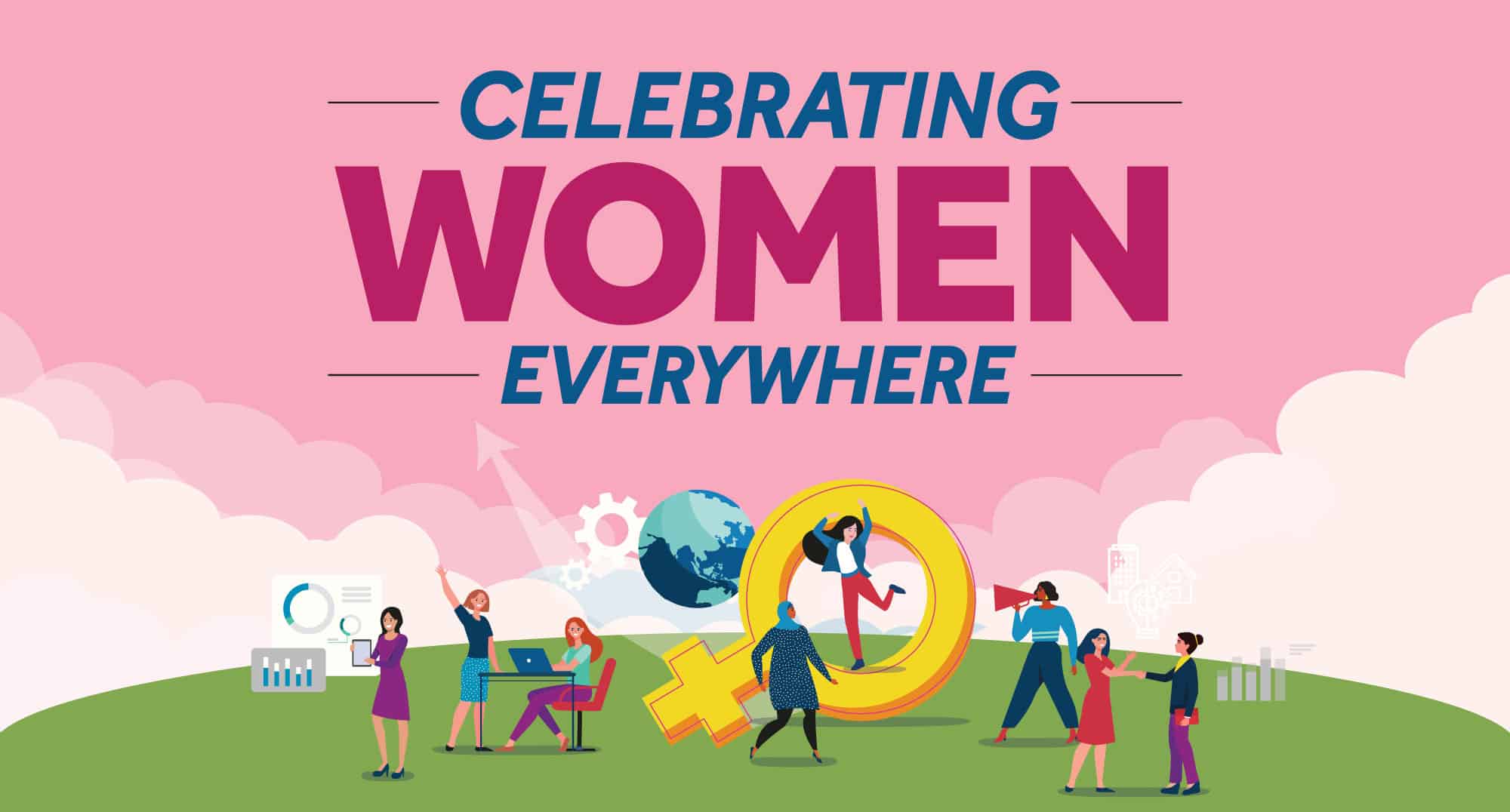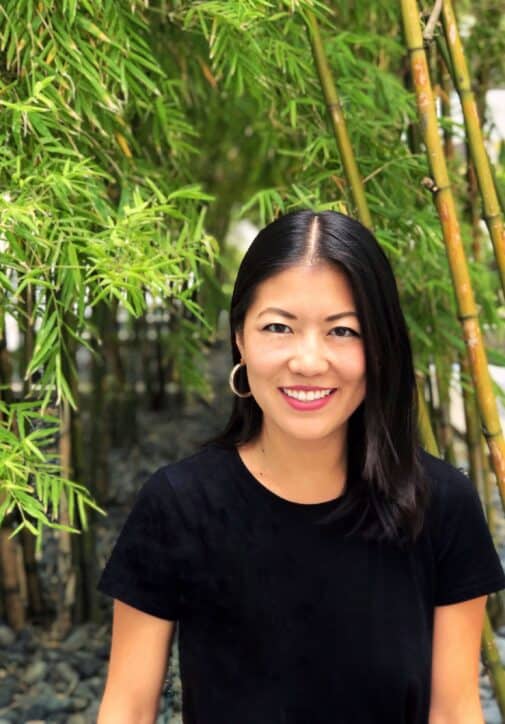International Women’s Day Spotlight: Ladies Within The JustCo Community Making A Difference

The theme for International Women’s Day this year is #ChooseToChallenge, which is apt, especially as we prepare for a gradual transition to the post-pandemic world. Capturing the narratives of the women in the JustCo community who have chosen to challenge the odds to fight for what they believe in, we shed light on the various touchpoints of the discourse.
Celebrating women in tech

According to a study by the Boston Consulting Group and Singapore’s Infocomm Media Development Authority, women make up 32% of South-east Asia’s tech sector, which is higher than the global average of 28%. Thailand tops the list with 42% of women in tech, while Singapore comes in second with 41%, even though she holds the lowest share of women tech majors in the region. With the growing importance of tech in today’s increasingly digital world, especially through the Covid-19 phase and beyond, making the industry more accessible to women becomes crucial.
Numbers aside, we see women’s relentless pursuit to carve out their paths in the sector. More often than not, these are driven by their interests and goals. For Chief Operating Officer at Tech In Asia, Maria Li, this couldn’t be any further from the truth.
Drawn to Apple’s innovative brand and far-reaching impact, Maria leveraged the tech giant to start her foray into the sector. “I’ve always been deeply interested in supporting the development of local economies and investing in local businesses that drive long-term change and opportunities for their region,” she shares. From a Senior Business Operations Manager to the APAC Regional Lead, Maria’s dedication to building local tech communities with Apple led her to a leadership position at Tech In Asia, a regional tech media company.
Helming an important role within the startup, Maria was tasked to pull the company out from a rough patch, that too against the challenges of the media industry. Flexing her muscles in a sector she had already earned her merits in, she worked on the ground and turned the business around. Now this deserves more than a pat on the back!
Addressing & managing gender disparity in the tech sector
“I didn’t think too much about it at first,” Maria reminisces when asked about her experience being a woman, a minority in the industry. “It wasn’t until one of my first supplier meetings that was a blend of engineers and manufacturing ops, where I was the only woman in a room of 20+ people, that I noticed the imbalance.”
While it is common to encounter feelings of anxiety and insecurity while working in a male-dominated industry, Maria strongly advises to stay positive and use these as motivation to work harder. When these feelings no longer serve their purpose, let them go. Lending this mindset to the team level, she takes active steps to check her blind spots and avoid falling victim to her own biases when making decisions on hiring and promotion. It is also vital, she adds, to catch up with team members who may be holding onto such biases, and give them space to voice out and work around their insecurities. These are essential to creating a diverse and open team.
What Maria champions internally is what she does on the public level. With its significant influence, Tech In Asia can exercise its power to bridge the gender gap, Maria remarks. “I used to be much shyer about raising these issues when I was younger, but these days I’m quite unabashed about calling things out because I’ve learned if you don’t participate in the change, nothing changes.” One of the areas she has been advocating for is gaining parity in male to female speakers for Tech In Asia conferences.
Empowering women at work

Advocating for greater accessibility for women in various male-dominated sectors like tech is a feat; creating opportunities to break the glass ceiling is the next frontier. The latter lies in creating pathways that allow them to achieve just that, a key facet of gender equity. Strategists at WorkWell know this well.
Speaking to Kimi Oh, the founder of the workplace wellness consultancy firm, we learn that plenty of wellness programmes organised by corporations lack participation and interest from employees. This sparked the idea of customised solutions for businesses. Not only critical for establishing a stronger sense of belonging to their organisations, but such strategies also come together as a cornerstone to encourage work-life balance among specific groups within the society, enabling them to reach greater heights. One of which would be working mothers.
Rendering greater support to working mothers
Kimi didn’t need to look too far to witness the struggles of working mothers. “I do have many working mums in my team,” she says. “To juggle between the responsibilities of a mum and working professional needs lots of mental support from both the families and employers.”
Being perceived to be less committed to work and bogged down by family obligations are just some of the many stereotypes working mothers face, whether they return to work following maternity leave or join a new company as mothers of young children. With much of the caregiving burden resting upon them, they often question whether they can manage a career alongside the demands of motherhood. Such anxieties are elevated with the increasing adoption of remote working, which blurs the line between work and home – one that is often oblivious to young kids.
It takes a good, wise and caring employer to make work and life manageable for such mothers, empowering them to achieve their career goals while fulfilling caregiving duties. Some essentials employers must look into, Kimi points out, are flexible working hours and emergency leaves, as well as basic provisions like nursing rooms for lactating mothers back at work.
Definitely, more can be done.
“We help companies support their women employees through our holistic workplace wellness programmes that aid both their physical and emotional wellness at work,” Kimi shares, adding that providing feedback from the women’s point of view is necessary to advise employers on what more can be done to further enhance workplace wellness for working mothers. Some of these include programmes on stress management and mindfulness, and financial planning for families, allowing women to have a greater sense of control over their lives and make meaningful career decisions for themselves.
With complimentary sessions to gauge employee interests, Kimi and her team can effectively create targeted programmes that attract voluntary take-up rates instead of compulsory participation from higher management.
Creating inclusive workplaces for all
Ensuring working mothers can fulfil their job responsibilities with ease is not only about empowering women at work. It is also about creating inclusive workplaces so they can perform to their full potential. When we celebrate International Women’s Day, we want to drive the discourse towards equality and equity as a whole. Speaking about workplace inclusivity from the perspective of disadvantaged or minority groups is, therefore, imperative.
Noburo’s co-founder, Thisana Thitisakdisku, couldn’t have addressed this any better. A social startup providing financial welfare services to employees and employers, Noburo aims to bridge the wealth gap in Thailand by helping low-income workers plan their finances effectively and prevent them from falling into the trap of debt. Otherwise, they become victims of loan sharks who demand high-interest rates and dig a deeper hole in their emergency and retirement savings. The consequence? They drop out of work, as their employers are not well-equipped to cushion such mishaps.
“Our belief is that, only providing access to finance is not a sustainable way to solve the problem; financial literacy needs to come along as well,” Thisana notes.
Making financial literacy more accessible
In the case of low-income workers, providing them with simple financial planning tools and loan restructuring facilities at the workplace is instrumental in alleviating stress so they can channel more energy to their work responsibilities. A solution built on empathy allows for greater understanding of users’ pain points and lifestyles vis-a-vis one’s job – this is what drives Thisana and her team to design sustainable products and services through the power of data and technology to help the underserved.
However, such programmes will not be effective until the workplace values employee concerns, a culture Thisana advocates at Noburo. “We provide a space for our employees to speak up as this shows that their opinion matters and that they can provide feedback openly.”
Indeed, if inclusivity is what you want to champion at the workplace, it has to start from within.
“An inclusive workplace is where all employees are treated equally, every opinion and feedback counts, and career advancement opportunities are open for everyone regardless of their gender, age and education level,” Thisana remarks, adding that a work environment as such builds trust among the team, enabling better communication.
Source: JustCo
Subscribe to our mailing list to get the latest updates and learn more about our 2021 programs!

